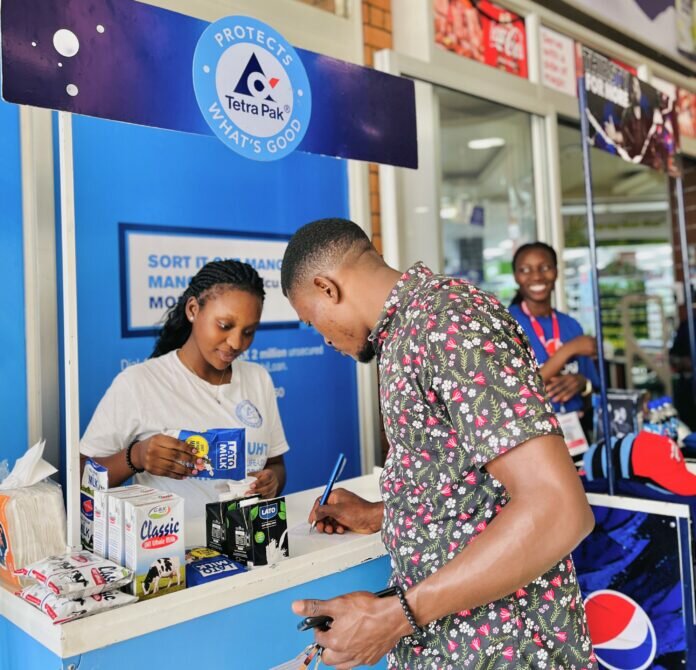The digital era is on us with the pandemic sealing the deal as tech and ecommerce stepped up and on parade. Tantalizing us with seamless, effortless shopping, even at 3am when sleep just won’t play the game – essentially reprogramming our DNA.
In the bigger picture looking well beyond the horizon (or is it just around the corner?), we are ultimately gearing up to be humanoids where our bodies are landscaped for tech. Super handy, but not just yet. As it turns out we also like the human-on-human experience – to network as a crew, to be part of a crowd and share experiences.
Warren Brett Cluster Executive, SEA Region, Smollan Tanzania, takes a closer look at activations in Africa. Where personal and immersive experiences capture interest and set the scene for a properly engaging story and where the customer feels great about their decision to buy product X or Y. Therein lies the beauty, that cannot be experienced (for now) from a couch.
Activations are the key that unlocks the connection between brands and consumers as they drive to incite trial and drive conversion, selling benefits over features and affecting behavioural changes.
As the market becomes increasingly flooded with a wide range of products and services it breeds a highly competitive environment to gain customer wallet share. So too, consumers are becoming increasingly discerning and with said tech developments and internet penetration they are not only well exposed but also knowledgeable. In turn, retailers and brands have had to shift their focus from awareness to connections, which have proven to offer a longer-term customer lifespan.
We can then measure the effectiveness of activations with the ability to track reach, conversion as well as consumer insights
In Africa, companies are now offering more interactive BTL activities including activations as a must have in their marketing plans from sampling activities, experiential activities, and instore activations to drive brand and increase product uptake. A chance to build, target and engage.
“Activations in Africa are on the increase – an opportunity to position brands differently based on who your target market is, where they are shopping, and what they like to be associated with. As well as addressing specific needs both functionally and emotionally. With the economic difficulties affecting the region we’ve seen that consumers are shifting their shopping behaviour to purchasing more local products that are cheaper. This has forced multinationals to focus on the benefits of selling promotions and association marketing that is primarily being driven by consumer facing activations,” says Brett.
For niche brands – events, high-net worth activities i.e., golf activations and tastings as well mall experiential activations are beginning to sway consumer decision-making. At the other end of the mass brands scale, initiating high traffic activations such roadshows, market storms and home-to-home are reaching B-C2 consumers.
“We can then measure the effectiveness of activations with the ability to track reach, conversion as well as consumer insights which assist in tailoring the activation strategy to fit a specific consumer segment,” added Brett.
That said, there are challenges. Customers in Africa in generalised terms are happy to experience brands for free during trials and shows, but not necessarily patronise the brand going forward.
Valuable strategies to shift this narrative include:
• Using activations to increase brand value as findings show that customers in Africa do not regard value as making extraordinary promises but rather, as consistently fulfilling simple promises.
• Thoughtfully planning and running activations that deliver the right messages to the right audience at the right frequency through the proper channels.
• Determining the exact role of the activation at each step of the buying journey. Offline and online activations must also be in sync.
read: Is Wave mobile money currently just surviving?
• Prioritising intimate customer engagement over massive events can create new opportunities for understanding customer behaviour, consumption patterns, values, and lifestyles.
“Giving support to value chains and creating a buzz with consumers who have not necessarily experienced these types of events before is incredibly satisfying. We’ve seen first-hand in Kenya how we were able to reach 56,000 consumers in a week with a conversion rate of 91% for one client; 30,000 in-store customer interactions with approximately 7,500 Pcs sales recorded for another, and in a roadshow and caravan format, onboard 19,569 traders. It makes the activation potential in Africa, despite the challenges, so exciting,” said Brett.
also read: Is MTN Uganda on the verge of becoming a bank? Are Ugandan banks ready for this monster?














































